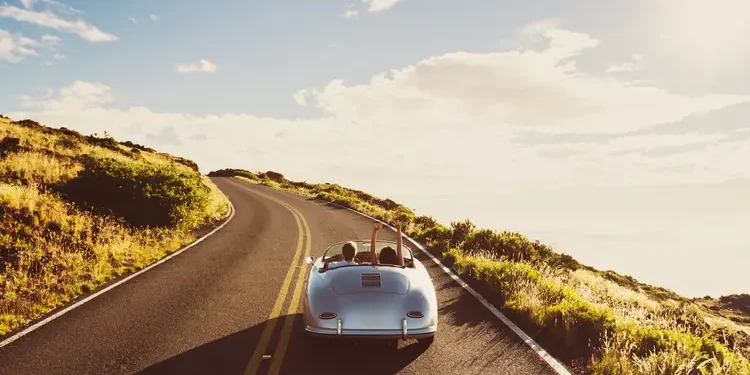Mark Twain summed up behavior like this:
“The cat, having sat upon a hot stove lid, will not sit upon a hot stove lid again.
“But he won’t sit upon a cold stove lid, either,” Twain observed.
The cat is reacting with his gut. You and I might think gut decisions, coming from instinct and emotions, are sometimes ill-advised. We might think we’re better off applying reason, analysis, and logic.
But the truth is that we all make most decisions automatically, without thinking.
Reasoning out every step along the way is hard. Revert solely to reason and you might have trouble deciding what shirt to wear or whether your tea is the right temperature.
Thinking over every question requires way too much time and effort.
How do you decide when to get out of bed on a lazy Saturday morning?
You could try to reason it out. You could review what you have to do or want to do or should do. You could ask what you might gain from drinking more coffee or reading more of your newsfeed.
Before too long you realize that just listing what you need to think about to decide whether and when to get out of bed could easily take up the day. So instead of using reason, you get out of bed when you feel like it.
Same is true of deciding when and where to reinvent your life overseas.
Making the right decision comes down to knowing what makes you happy… then arranging your affairs to achieve that pleasant state.
Suppose what you most want most is to travel the world, to eat, drink, and be merry with people you meet on the road.
You want to enjoy the adventure along the way, to savor every random moment.
Given that, buying a big house on the water wouldn’t be a good decision, would it? It takes you away from your goal, not toward it.
The big house comes with gardening, leaky roofs, animals, repairs, taxes, and maintenance costs. You can’t travel and chase adventure at will. You’re tied to your big house.
Even if you think the house might be a good investment, buying it would be a mistake.
The contrary is also true.
When my friend Wilbur celebrated his 50th birthday, his wife asked him what he most wanted out of the rest of his life. Wilbur said, “I’ve always spent my happiest days on Cape Cod. I guess I’d like to buy a house on the water, and a sailboat. I could teach my grandkids to sail.”
Wilbur went out and bought a villa on Bass River. He bought a small boat. He sails with friends and he teaches his grandkids how to sail. His house is in perfect sync with what he wants out of life.
As it turned out that house went up in value. Wilbur made money in a way that improved his life.
To make sure your investments line up with what makes you happy, you need to decide what makes you happy.
I know that sounds cavalier. Research shows that most people have little idea of what makes them happy. Ask someone about their purpose in life or what they want out of life and they respond with a shrug or simply say they want to be happy.
If you keep prodding and ask them what makes them happy, they are usually stumped.
I know. I still have trouble answering those questions myself. They’re hard questions.
So I’ve come up with a simpler approach. Instead of thinking in general about what makes you happy, think back to your most joyful moments. Think back to your worst moments. Do this over a period of a month or so, and make a list. At the end of the process, you’ll likely have a pretty good handle on how you like to live.
In my case, I’ve decided that some of the worst moments in my life have had to do with traffic. I don’t like to waste time, and sitting in traffic is nothing but a stressful, frustrating waste of time.
So I’ve organized my life to avoid traffic as much as possible.
When I’m in Paris, I’m able to walk almost everywhere I need or want to go day-to-day. Within 15 minutes of our front door are grocery stores, bakeries, wine shops, cafés, restaurants, bookstores, parks, gardens, museums, and my favorite places to shop for clothes. When I want to travel beyond our quartier, I hop on the Metro.
When I’m in Panama at Los Islotes, I have a car but I never have to sit in traffic. This coast is blissfully free of every hassle and frustration of modern life, including rush-hour traffic.
I do have to deal with traffic when I’m in Panama City. I accept that because, while traffic is one of my least favorite things in life, building businesses is one of my favorite. Live And Invest Overseas is headquartered, needs to be headquartered, in a city. No way around it.
In other words, maybe you can’t eliminate the things you don’t like completely. Engineering your most happy life is about compromises. Remember the 80/20 rule. I accept that maybe 20% of my time is spent fighting traffic in Panama City because I don’t have any intention of giving up on my entrepreneurial objectives. They’re the driving priority of my life right now.
What stands out in your memory as the most joyous times of your life?
Start there.
Before setting off on your live and invest overseas adventures, take time to get to know yourself.
Make choices and decisions that flow from your likes, your dislikes, your preferences.
Suit your new life to your true self, rather than the other way around.
Until next time,

Kathleen Peddicord
Founding Publisher, Overseas Opportunity Letter










